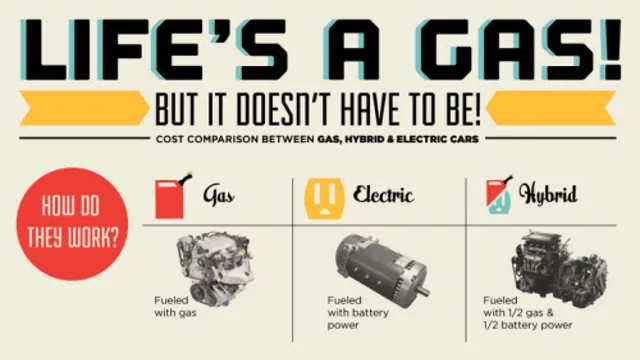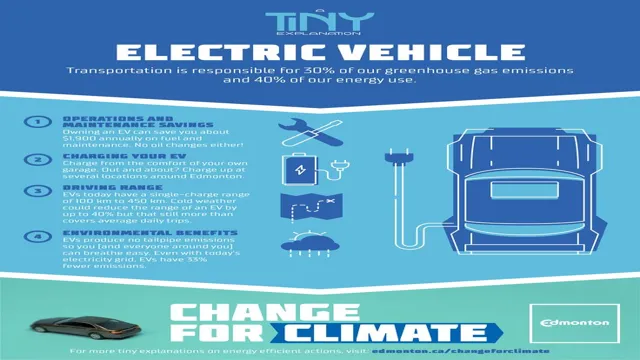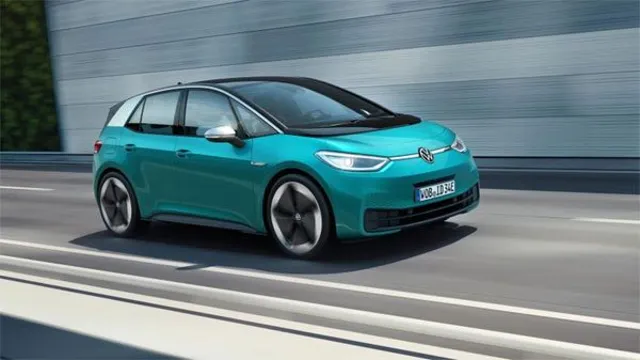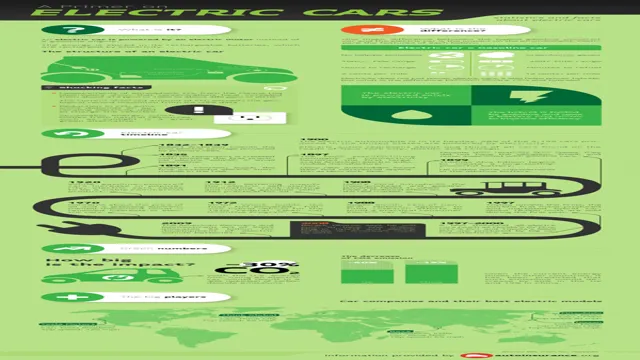Electric Cars: Is the Cost Worth the Benefit? A Comprehensive Analysis
Have you ever considered purchasing an electric car? With the constant rise in gasoline prices and the growing concern for the environment, electric cars have become an increasingly popular and practical option for many people. However, with a higher upfront cost, many are left wondering if the benefits outweigh the cost. This is where a cost benefit analysis comes in – analyzing the monetary and environmental benefits of owning an electric car compared to a traditional gas-powered car.
In this blog, we will dive into the cost benefit analysis of electric cars and help you make an informed decision on whether an electric car is the right choice for you.
Upfront Cost
When it comes to purchasing an electric car, one significant factor to consider is the upfront cost. Although the initial price of an electric car may be higher than a traditional gasoline-powered vehicle, the long-term benefits can far outweigh the upfront cost. A cost-benefit analysis can help determine the potential savings in terms of fuel costs, maintenance, and tax incentives.
Additionally, with advancements in technology and increased demand, the costs of electric vehicles are gradually decreasing. Moreover, the environmental benefits and reduced carbon footprint of an electric car cannot be overstated, making it a long-term investment that not only pays off financially but also serves as a responsible move towards a sustainable future.
Comparing Electric and Gasoline Cars
When it comes to upfront cost, electric cars may seem more expensive than gasoline cars at first glance. However, when you consider the long-term cost benefits, buying an electric car can actually save you money in the long run. While the initial cost of an electric car may be higher due to the cost of the battery and specialized parts, the cost of gasoline is a significant expense with traditional cars that is eliminated with electric cars.
Additionally, electric cars have better resale value than gasoline cars. So, while the electric car may seem like a bigger investment upfront, the long-term cost benefits make it a smarter financial choice for many consumers.

Potential Tax Incentives
When it comes to investing in renewable energy sources like solar panels, the upfront costs can be a major deterrent for homeowners and businesses. However, there are potential tax incentives that can help offset these costs and make going solar more affordable. For example, the federal government offers a solar Investment Tax Credit (ITC) that allows you to deduct 26% of the cost of solar panels from your federal taxes.
This credit applies to both residential and commercial properties and can be applied to both purchased and leased systems. Additionally, many states and local governments offer their own tax credits, rebates, or other incentives, which can further reduce the upfront cost of going solar. It’s worth checking with your local government or a tax professional to see what incentives are available in your area.
By taking advantage of these tax incentives, you can make the upfront cost of solar panels more manageable and start reaping the benefits of renewable energy sooner.
Lifetime Cost
Electric car cost benefit analysis is an essential consideration when purchasing a vehicle. Although an electric car’s upfront cost might seem higher than traditional gasoline vehicles, the lifetime cost is undoubtedly much lower. When taking into account the fuel cost savings, maintenance, and tax incentives, electric cars are often cheaper in the long run.
For instance, electric cars are generally more energy-efficient and require less maintenance, translating to fewer trips to the mechanic. Additionally, electric cars are eligible for numerous federal, state, and local tax incentives that can significantly lower the overall cost. It is crucial to consider the lifetime cost of an electric car truly, including the amount you’ll save on maintenance, fuel cost, and tax incentives, to make an informed decision.
Maintenance Costs
When considering the purchase of a new vehicle, it’s important to think beyond the initial sticker price and factor in the lifetime cost. One significant cost to consider is maintenance. Proper upkeep of a vehicle is crucial for ensuring its longevity and preventing costly repairs down the line.
Regular maintenance tasks such as oil changes, tire rotations, and brake inspections can add up over time. The lifetime cost of maintenance can vary greatly depending on the make and model of the vehicle, as well as how often it is driven and how diligently it is maintained. However, it’s important to prioritize routine maintenance to avoid larger expenses in the future.
By staying up-to-date on maintenance tasks and investing in quality parts and services, you can help ensure that your vehicle stays in top working condition for years to come.
Fuel Costs Comparison
When it comes to owning a car, fuel costs can significantly impact your finances in the long-run. While comparing the fuel efficiency of different vehicles may give you an idea of which is more economical, factoring in their lifetime costs can give you a more accurate picture. Lifetime cost takes into account factors such as the initial cost of the car, maintenance, repair expenses, and insurance premiums, along with fuel costs.
By examining each of these factors, you can get a better idea of which car will ultimately be less expensive to own. Additionally, it’s worth noting that optimizing your driving habits, choosing the right fuel, and keeping up with routine maintenance can all help reduce your fuel costs over time. So, if you’re looking for a car that won’t break the bank over its lifetime in terms of fuel costs, consider calculating its lifetime cost to make an informed decision.
Environmental Benefits
When considering the environmental benefits of a product, it’s essential to evaluate its lifetime cost, encompassing the production, use, and disposal stages. It’s crucial to note that cheaper products don’t necessarily mean more cost-effective as they may produce more waste, consume more resources, or require frequent replacements. A product with a higher initial cost but durable and energy efficient may have a lower lifetime cost, making it more environmentally friendly.
Choosing products made from sustainable materials, such as bamboo or recycled plastic, can reduce the carbon footprint and waste generated. Additionally, products that can be recycled or upcycled at the end of their useful life also reduce environmental impacts. Thinking beyond short-term cost savings and considering the product’s full life cycle can lead to more sustainable consumption patterns that benefit the environment and our wallets in the long run.
Resale Value
One of the key advantages of owning an electric car, in addition to its positive environmental impact, is its high resale value. Compared to traditional gasoline-powered vehicles, which typically lose a significant portion of their value within the first few years of ownership, electric cars tend to hold their value much better. This is due in part to the fact that electric cars require less maintenance, have fewer moving parts, and come with longer warranties, making them more attractive to buyers looking for a reliable and cost-effective vehicle.
Moreover, as demand for sustainable transportation options continues to grow, resale values for electric cars are likely to increase even further, making them an even smarter investment for environmentally-conscious drivers. While the upfront cost of purchasing an electric car may be higher than that of a gas-powered car, the long-term savings and high resale value make it a wise and responsible choice for both your wallet and the planet.
Depreciation Rates for Electric and Gasoline Cars
When it comes to buying a car, resale value is a crucial factor that should not be overlooked. Electric cars and gasoline cars have different depreciation rates, which can significantly affect their resale value. Electric cars are known for their lower depreciation rates compared to gasoline cars.
This is because electric cars have fewer moving parts and are generally more durable, which leads to less wear and tear over time. Additionally, the technology in electric cars is still advancing, which means older models can become obsolete quickly. On the other hand, gasoline cars are known for their higher depreciation rates.
This is because gasoline cars require more maintenance and have more moving parts, which means they are prone to wear and tear. Gasoline cars also have a limited lifespan as technology advances, which can lead to newer models becoming more desirable. Ultimately, the resale value of an electric car will depend on a variety of factors, including the make and model, condition, and demand.
However, it is safe to say that electric cars tend to hold their value better than gasoline cars.
Future Trends to Consider
As the world becomes more conscious of the environment, resale value is gaining traction as a future trend to consider when making purchases. The resale value of a product is its worth on the secondary market, and it can be influenced by several factors such as brand name, durability, and material quality. In the past, products were designed with a “use and throw” mentality, but now more than ever, customers are looking for quality products that they can resell or donate after use.
This trend is fueled by the rise of sustainable living and minimalism. Customers are looking for items that have a longer lifespan, and this is reflected in the resale price. Therefore, brands that prioritize sustainability and durability are more likely to have a higher resale value.
The resale market has also become more accessible to the masses through online platforms such as eBay, Depop, and Poshmark, making it easier for customers to buy and sell secondhand goods. As a result, customers are not only willing to pay top dollar for quality products but also to resell them at a higher price in the future. With resale value becoming an important consideration for customers, brands must focus on creating sustainable, high-quality products that are designed for longevity, and customers must adapt to the mindset of buying and reselling to protect the environment and their wallets.
Conclusion
In conclusion, after a thorough cost benefit analysis of electric cars, it is clear that the benefits of driving clean, efficient vehicles far outweigh the financial costs. Sure, you may have to charge up more frequently than gas up, but the long-term savings on fuel and maintenance make it more than worth it. Plus, who wouldn’t want to reduce their carbon footprint and contribute to a cleaner, greener future for our planet? So, the next time you’re considering buying a new car, consider the electric option and join the ranks of savvy, eco-conscious drivers everywhere!”
FAQs
What is a cost benefit analysis for electric cars?
A cost benefit analysis for electric cars is a process of evaluating the costs and benefits of owning and operating an electric car compared to a traditional gas-powered car.
What are the main benefits of owning an electric car?
The main benefits of owning an electric car include lower fuel costs, reduced emissions, and a quieter driving experience.
What are the main costs associated with owning an electric car?
The main costs associated with owning an electric car include the higher initial purchase price, the cost of installing a home charging station, and potentially higher insurance rates.
How do the costs and benefits of owning an electric car compare to those of a gas-powered car?
The costs and benefits of owning an electric car are highly dependent on individual circumstances such as driving habits, local fuel prices, and available tax incentives. However, in general, electric cars tend to have lower fuel and maintenance costs over time, but a higher upfront cost.






